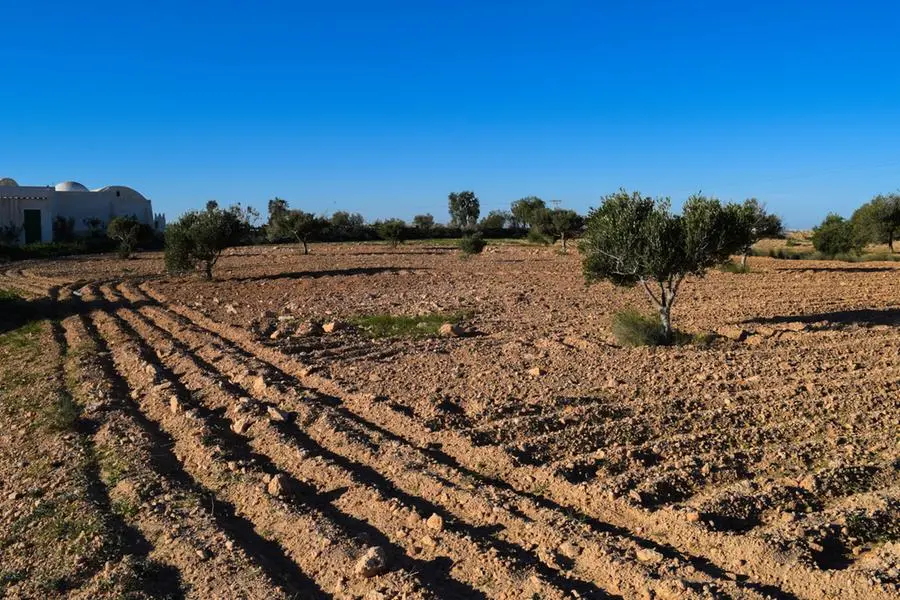PHOTO
Tunisia - The Tunisian Forum for Economic and Social Rights (FTDES) called in a note issued Thursday for immediate action to protect and ensure the sustainability of the ramli crops of the Sidi Ali Mekki lagoon in Bizerte.
This unique farming system, known as "guettayas", has been recognised as a "Globally Important Agricultural Heritage System (GIAHS)" by the Food and Agriculture Organisation (FAO).
Following a field visit to the sebkha of Sidi Ali Mekki, Forum experts recommended urgent action to ensure that the region's crops (including potatoes, onions and white beans) are regularly supplied with sufficient water through appropriate channels connecting the lagoon to the sea.
The closure of the passages between the lagoon and the sea tends to disrupt the natural irrigation balance that is characteristic of these sand-based crops.
Ghar El Melh is the first Arab and North African city to be included in the Ramsar list of wetlands of global importance.
The "guettayas" technique, or sand-based cultivation, is characterised by a passive irrigation system in which the roots of the plants are nourished throughout the year by rainwater floating on top of seawater, facilitated by tidal movements. This natural system allows crops to be grown all year round without the need for artificial water, even during periods of drought.
Despite its global importance, this system is now threatened by urban expansion, including the construction of a new commercial port and its access roads, the diversion of the Medjerda estuary to the south, the growth of tourism activities, unregulated construction and decreasing rainfall, according to the FTDES note.
The Forum's experts also stressed the need to "reduce the growing human pressure on the ecosystem on which sand-based cultivation depends".
In this context, the Forum recalled that the regional office of the Coastal Protection Agency (APAL) in Bizerte had documented the construction of 60 houses and buildings in the area by early 2015, in flagrant violation of the law protecting public maritime areas.
The Forum said various human activities have increased the vulnerability of the sand harvesting system, exacerbated by climate change.
According to the FAO, the average production in the Sidi Ali Mekki lagoon in 2020 was between 28 and 38 tonnes per hectare, a figure that has decreased significantly, as noted by the FTDES.
The forum also stressed "the need to publish the study carried out under the 'Green Wet' project and to implement its recommendations in order to improve the flow and quality of water in Sidi Ali Mekki".
The Ministry of Agriculture had previously announced in 2021 that this study was in its second phase.
The lagoon's freshwater supply has been reduced following the diversion of the mouth of the Medjerda River to the south and the construction of dams along its banks, leading to the deterioration and abandonment of the waterway connecting the lake to the sea, while the new waterway has failed to secure the lake's seawater supply.
The FTDES stressed the importance of adopting legislation to grant privileges to the farmers of the Sidi Ali Mekki lagoon, allowing them to extract sand to restore agricultural land.
It also called for the valorisation of this agricultural heritage "within a tourism dynamic focused on ecotourism and respect for ecosystems and the environment".
© Tap 2022 Provided by SyndiGate Media Inc. (Syndigate.info).





















